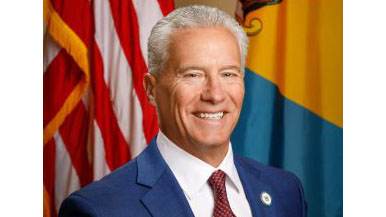Earlier this week, Gov. Matt Meyer signed a package of legislation aimed at expanding opportunity, improving access, and strengthening protections for Delaware’s military families and National Guard members.
“If you serve our state or our country, you shouldn’t have to jump through hoops to access an education, support your family, or be treated fairly,” Gov. Meyer said. “These bills are about breaking down real barriers that military families face.”
House Bill 160, sponsored by Rep. Danny Short, in photo, updates the Delaware National Guard education benefits program by allowing tuition and fees to be paid directly to postsecondary institutions. The bill eliminates the need for Guard members to pay upfront and wait for reimbursement, removing a key barrier for younger service members seeking to pursue higher education.
“This legislation will help ensure that financial barriers don’t stand in the way of service members pursuing higher education,” Rep. Short said. “By covering tuition and fees upfront, we’re expanding access to greater opportunities, strengthening the Guard’s recruitment incentives, and developing the talents and skills of our Guard personnel.”
“House Bill 160 puts us in alignment with other states in terms of honoring their committed service and ensuring that they have financial access to a quality education,” said Sen. Spiros Mantzavinos (D-Elsmere, Greenbank), the prime Senate sponsor of the legislation.
House Bill 121, sponsored by State Rep. Nnamdi Chukwuocha (D-Wilmington), exempts military-run childcare centers located on federal property from Delaware’s state licensing requirements, aligning state law with federal standards and ensuring continuity for military families stationed here. State Reps. Jeff Hilovsky (R-Oak Orchard, Long Neck), Rich Collins (R-Millsboro), and Lyndon Yearick (R-Camden, Wyoming, Woodside) were among the bill’s co-sponsors. The bipartisan proposal passed both chambers unanimously.
Another bipartisan measure, House Substitute 1 for House Bill 55, adds “military status” as a protected class in Delaware’s anti-discrimination laws—covering housing, employment, education, insurance, and public accommodations. The bill strengthens legal protections for active-duty personnel, veterans, and their families and was approved in the legislature without dissent.
















